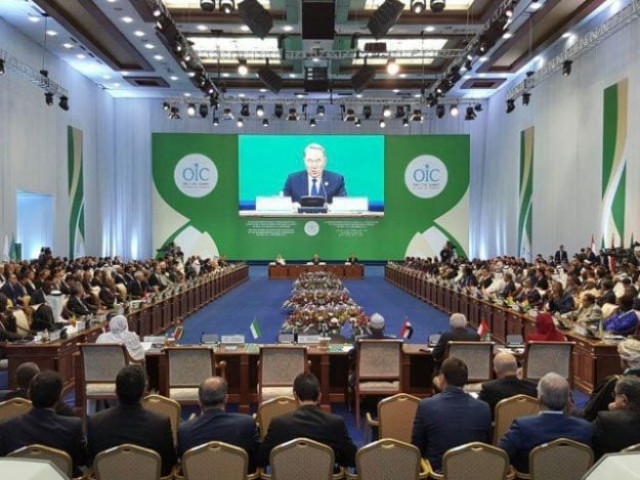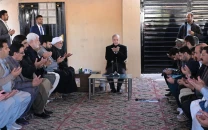OIC concerned over rights violations in IOK
Seeks access to the held region to assess and report on the human rights situation

PHOTO: File
The commission – headed by Chairperson Med Kaggwa and comprising Dr Rashid al Balushi, Dr Raihanah Binti Abdullah, Ambassador Abdul Wahab, Dr Ergin Ergul, Professor Saleh Al Khathlan and Dr Oumar Abbour Abba – visited Azad Jammu and Kashmir on the invitation of Pakistan.
The commission called for safeguarding the right to life and right to freedom of opinion and expression, of religion, of peaceful assembly and association as well as other fundamental human rights of Kashmiri people guaranteed under the international law.
Pakistan, Turkey agree to promote bilateral ties with focus on trade, economy
Citing the Kashmir Institute of International Relations, the commission said there were reports of widespread curfews and curbs on religious congregations for fear of protests and “people have legitimate security concerns regarding protection of their right to life and dignity”.
The commission called the use of restrictive and discriminatory laws by Indian security forces, such as AFSPA Act, contrary to international human rights standards. “These laws grant sweeping powers to Indian security forces to detain, torture and even kill suspects without any fear of investigation, hence, leading to a culture of impunity which violates fundamental human rights.”
Through discriminatory laws, the commission said, Indian security forces had created an atmosphere of impunity and fear which led to grave human rights abuses against unarmed demonstrations and protestors with little regard for principles of proportionality and necessity.
The commission noted that if India continued to refuse the various reports about the human rights violation being committed by its troops, it should allow the UN, the OIC and other organisations to verify the situation on ground through independent fact-finding missions.
Pakistan plays vital role for region's stability: Deputy PM Bahrain
It expressed the hope that the Indian government would respond positively to the IPHRC request to grant access to IOK to independently and objectively assess and report upon the human rights situation.
“The Kashmir dispute is not merely a question over terrorist jurisdiction between India and Pakistan but is concerned with the future of millions of people who wish to exercise their inherent and inalienable right to self-determination,” the commission said.
It noted that the people of Kashmir had high hopes and expectations from the UN, OIC, IPHRC and the international community to undertake substantive measures towards realisation of their right to self-determination and protection of their basic rights.
Meanwhile, the report by the Kashmir Institute of International Relations pointed out that Indian forces were indiscriminately using pellet-guns against Kashmiri civilians and in last one year more than 12,000 people had been injured, around 1,500 of them in eyes. APP



















COMMENTS
Comments are moderated and generally will be posted if they are on-topic and not abusive.
For more information, please see our Comments FAQ